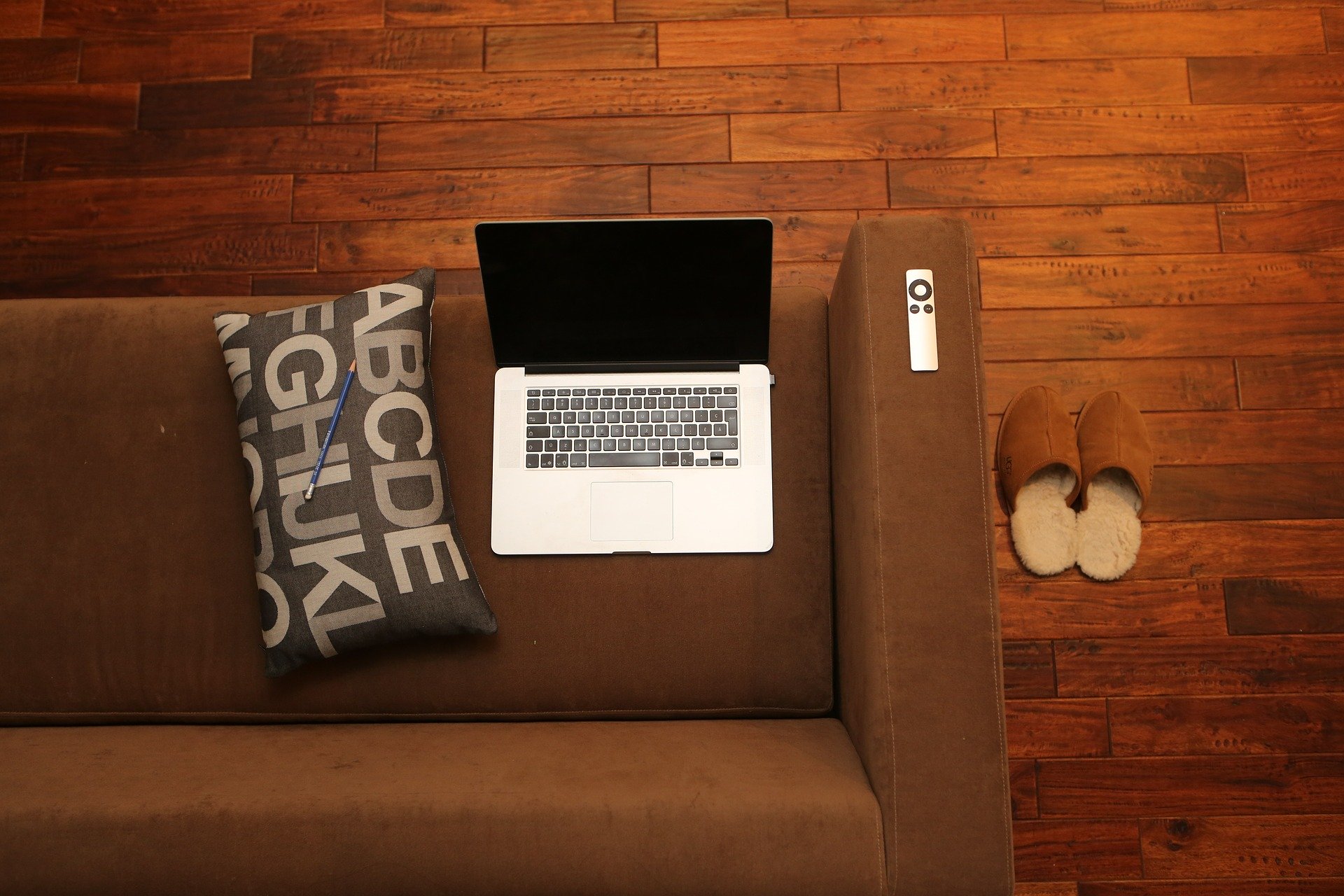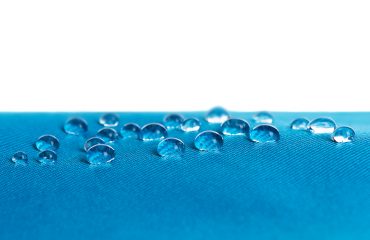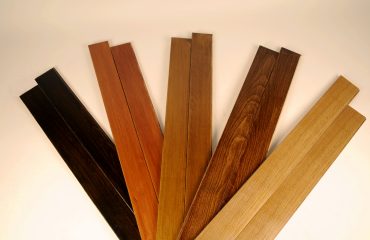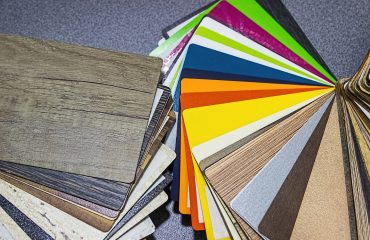
Flooring can dramatically transform the look of your home, but it can also significantly impact your budget. Understanding the strengths and weaknesses of various flooring material types is key to making a choice that balances cost with quality. This blog will guide you through the diverse world of flooring options, breaking down the benefits and drawbacks of each to help you find the perfect match for your budget and aesthetic goals.
List of Contents
Hardwood Flooring
When it comes to classic and elegant home design, hardwood flooring stands out as a popular choice among homeowners. Its natural beauty, warmth, and timeless appeal have made it a preferred flooring option for generations. However, like any material, hardwood flooring comes with its own set of advantages and disadvantages.
PROS
- Aesthetic Appeal and Timelessness: Hardwood floors boast a natural and inviting look that complements almost any interior design style. From rustic to modern, the versatility of wood is unmatched. The rich textures and variety of colors and grains available ensure that each hardwood floor is unique, adding character to your home. Moreover, hardwood floors never go out of style, offering a timeless elegance that can endure shifting design trends.
- Durability and Longevity: One of the most significant advantages of hardwood flooring is its durability. When properly maintained, these floors can last for decades, even generations. Hardwood is known for its strength and resistance to wear and tear, making it an excellent investment for high-traffic areas. Furthermore, hardwood floors can be sanded and refinished multiple times, allowing you to rejuvenate their appearance and extend their life considerably.
- Adds Value to Home: Hardwood floors are a sought-after feature in real estate. They can significantly increase the value of your property, making them a wise investment. The timeless appeal and durability of hardwood flooring make it attractive to potential buyers, should you ever decide to sell your home. This aspect alone can be a compelling reason to opt for hardwood over other flooring options.
CONS
- Cost: The primary drawback of hardwood flooring is its cost. Both the material itself and the installation can be more expensive than other flooring options. The price varies depending on the type of wood, but generally, hardwood is considered a premium flooring choice and requires a higher budget.
- Susceptibility to Water Damage: Hardwood floors are vulnerable to moisture and water damage. Prolonged exposure to water can cause the wood to warp, swell, or stain. This sensitivity makes hardwood a less ideal choice for areas prone to moisture, such as bathrooms, laundry rooms, and basements. Prompt cleaning of spills and proper sealing can mitigate this risk, but it remains a consideration for potential buyers.
- Maintenance Requirements: To maintain their appearance and longevity, hardwood floors require regular care. This includes periodic sanding and refinishing, especially in high-traffic areas where the floor may become scratched or dull over time. Additionally, hardwood floors need to be kept clean from dust and debris, which can cause scratches. While the maintenance isn’t overly burdensome, it is more demanding than some alternative flooring options.
The Takeaway?
Hardwood flooring is a beautiful, durable choice that can add significant value to your home. However, it requires a higher initial investment and more maintenance than some other types of flooring. If you’re willing to invest in its upkeep, hardwood flooring can be a stunning and long-lasting addition to your home.
Laminate Flooring
Laminate flooring has gained popularity as a versatile and economical alternative to traditional hardwood flooring. It offers homeowners a balance of style and functionality, fitting a range of budgets and aesthetic preferences. Here’s a closer look at the pros and cons of choosing laminate flooring for your home.
PROS
- Cost-Effectiveness: One of the most appealing aspects of laminate flooring is its affordability. Compared to hardwood, laminate is significantly more cost-effective, making it an excellent choice for those on a budget. It offers the look of natural wood or stone at a fraction of the price, providing a practical solution for homeowners who want to upgrade their floors without breaking the bank.
- Easy Installation: Laminate flooring is designed for easy installation, often featuring a click-and-lock system that allows the pieces to seamlessly fit together without glue or nails. This DIY-friendly aspect reduces installation costs and time. It’s a great option for those who enjoy home improvement projects or for situations where a quick installation is necessary.
- Variety of Styles: With advanced printing technology, laminate flooring comes in a wide array of styles, colors, and patterns. It can mimic the look of various hardwoods, stone, and even tile. This versatility allows you to achieve almost any aesthetic from traditional to contemporary, making it easy to match the flooring with your home’s decor.
CONS
- Not as Durable as Hardwood: While laminate flooring is relatively durable and resistant to scratches, it’s not as robust as hardwood. It can suffer damage from heavy impacts and is not as long-lasting. Over time, laminate may show signs of wear and tear, especially in high-traffic areas.
- Cannot Be Refinished: Unlike hardwood floors, which can be sanded and refinished multiple times, laminate flooring cannot be refinished. Once it is worn or damaged, it must be replaced. This limitation can affect the long-term cost-effectiveness and sustainability of laminate flooring.
- Can Be Slippery: Laminate’s smooth surface can be slippery, particularly when wet. This can be a safety concern in homes with young children or elderly residents. Some laminate flooring options come with textured surfaces to mitigate this issue, but it’s a factor to consider when choosing the finish of your laminate flooring.
The Takeaway?
Laminate flooring is an attractive, cost-effective option suitable for a variety of home styles. Its ease of installation and wide range of designs make it a popular choice for many homeowners. However, its susceptibility to damage and the inability to refinish are important considerations, especially for those looking for a long-term flooring solution. If you’re seeking an affordable, stylish, and easy-to-install flooring option, laminate could be an excellent choice for your home.
Tile Flooring
Tile flooring is a classic and versatile option, favored in many homes for its durability and ease of maintenance. Commonly used in kitchens, bathrooms, and high-traffic areas, tile comes in a variety of materials like ceramic, porcelain, and natural stone. Each type offers its unique benefits and aesthetic appeal. However, like any flooring material, tile has its drawbacks. Let’s explore the pros and cons to help you determine if tile flooring is the right choice for your space.
PROS
- Durability: Tile flooring is known for its exceptional durability. It is resistant to wear and tear, making it ideal for high-traffic areas in the home. Quality tiles can last for decades without showing significant signs of aging or damage. This longevity makes it a cost-effective choice over the long term.
- Water Resistance: One of the standout features of tile flooring is its resistance to water and moisture. This makes it an excellent choice for wet areas like bathrooms, kitchens, and laundry rooms. Unlike many other flooring types, tile does not warp, stain, or become damaged due to water exposure, ensuring its longevity in moisture-prone areas.
- Low Maintenance: Tile floors are relatively easy to maintain. They are resistant to stains and spills and can be cleaned easily with regular sweeping and mopping. This low-maintenance aspect is particularly beneficial for busy households or in commercial settings where ease of cleaning is essential.
CONS
- Cold and Hard Surface: Tile floors can feel cold underfoot, especially in cooler climates or during the winter months. This can be uncomfortable in living spaces and bedrooms where warmth and comfort are desired. Additionally, the hard surface of tile can be tough on the feet and legs when standing for extended periods.
- Slippery When Wet: While tile’s water resistance is a pro, it can also be a con as the surface becomes slippery when wet. This can pose a safety hazard, particularly in bathrooms and kitchens where spills are common. Choosing tiles with a textured surface or installing anti-slip mats in critical areas can help mitigate this issue.
- Installation Complexity: Installing tile flooring can be complex and labor-intensive, often requiring professional skills, especially for intricate patterns or natural stone tiles. The process involves precise cutting, alignment, and grouting, which can be time-consuming and costly. DIY installation is possible but can be challenging for those without experience.
The Takeaway?
Tile flooring offers a blend of durability, water resistance, and low maintenance, making it a practical choice for many areas of the home. However, its coldness, potential slipperiness, and complex installation process are factors to consider. If you value longevity and ease of cleaning in your flooring and can address the comfort aspects, tile flooring can be an excellent and stylish choice for your home.
Carpet Flooring
Carpet flooring is a popular choice in many homes due to its comfort and aesthetic versatility. It provides a soft, cozy surface underfoot and can create a warm and inviting atmosphere in any room. However, it’s important to weigh these benefits against the potential drawbacks to determine if carpet is the right flooring choice for your needs.
PROS
- Comfort and Warmth: Carpet is unparalleled in terms of comfort. It provides a soft, cushioned surface that is gentle on the feet, making it ideal for spaces where you spend a lot of time standing or for children’s rooms where a softer play surface is appreciated. Additionally, carpet has insulating properties, adding warmth to a room, which is particularly beneficial in colder climates.
- Sound Absorption: Carpet flooring excels in reducing noise levels within a space. The soft fibers and padding absorb sound, making it an excellent choice for multi-level homes, apartments, and offices where sound transmission between floors can be an issue. This acoustic benefit creates a quieter, more serene environment.
- Variety of Textures and Colors: With a vast array of textures, colors, and patterns available, carpet flooring offers significant versatility in design. You can choose from plush, luxurious piles to more durable, textured options to suit your decor style and lifestyle needs. This variety makes it easy to find a carpet that aligns with your personal aesthetic and room functionality.
CONS
- Stain and Dirt Accumulation: Carpet is prone to stains and can accumulate dirt and debris more readily than hard flooring surfaces. Spills can be challenging to clean and may lead to permanent staining if not addressed promptly. This aspect requires homeowners to be more vigilant about spills and cleanliness, especially in high-traffic areas or in homes with pets and children.
- Allergens and Maintenance: Carpets can trap allergens like dust, pet dander, and pollen, which can be a concern for individuals with allergies or respiratory issues. Regular vacuuming and professional cleaning are necessary to keep allergens at bay and maintain a healthy indoor environment. This ongoing maintenance can be more demanding compared to other flooring types.
- Wear and Tear Over Time: Over time, carpet can show signs of wear, especially in high-traffic areas. It can become matted, frayed, or faded, which may detract from its appearance and require replacement. The lifespan of a carpet depends on its quality and how well it is maintained, but it generally does not last as long as hard flooring options.
The Takeaway?
Carpet flooring offers comfort, warmth, and a wide range of design possibilities, making it a desirable choice for many living spaces. However, its susceptibility to stains, allergen accumulation, and wear and tear over time are important factors to consider. If you prioritize comfort and are committed to regular maintenance, carpet can be a welcoming and stylish addition to your home.
Vinyl Flooring
Vinyl flooring has become increasingly popular due to its practical features and versatility. It’s a synthetic flooring material known for its resilience and adaptability in various home settings. From kitchens to bathrooms, vinyl can offer a functional and aesthetic solution. While it provides several benefits, it’s also important to consider some of its drawbacks. Let’s examine the pros and cons of vinyl flooring to help you make an informed decision.
PROS
- Water Resistance: One of the most significant advantages of vinyl flooring is its excellent water resistance. This characteristic makes it ideal for use in moisture-prone areas such as bathrooms, kitchens, and basements. Unlike many other types of flooring, vinyl does not swell, warp, or become damaged when exposed to water, ensuring its durability in these environments.
- Easy to Clean and Maintain: Vinyl flooring is incredibly easy to maintain. It resists stains and can be cleaned effortlessly with just a sweep and a mop. This low-maintenance nature makes it an attractive choice for busy households or commercial spaces where easy and efficient cleaning is a priority.
- Inexpensive: Compared to many other flooring options, vinyl is relatively inexpensive. It offers a cost-effective solution for those wanting the look of more expensive materials like hardwood or stone without the high price tag. This affordability makes vinyl an appealing option for large areas or for homeowners on a budget.
CONS
- Can Emit VOCs: Some vinyl flooring products can emit volatile organic compounds (VOCs), especially when new. These chemical emissions can have a short-term impact on indoor air quality. However, many manufacturers are now producing low-VOC or VOC-free vinyl flooring options, so it’s important to research and choose products wisely.
- Not as Valuable as Hardwood or Tile: While vinyl flooring can mimic the look of hardwood or tile, it doesn’t add the same value to a property. If you’re considering flooring from an investment perspective, vinyl may not be the best choice as it doesn’t have the same long-term appeal and value as natural materials.
- Susceptibility to Gouges and Scratches: Although vinyl is durable and resilient, it is more prone to scratches and gouges than harder materials like tile or stone. Heavy furniture, pet claws, and sharp objects can damage the surface. While some higher-quality vinyl options are more resistant to these issues, it’s a factor to consider, especially in high-traffic areas.
The Takeaway?
Vinyl flooring offers practical benefits such as water resistance, ease of maintenance, and affordability. However, considerations around indoor air quality, contribution to home value, and vulnerability to physical damage are important when deciding if vinyl is the right flooring choice for your home. For those seeking a cost-effective, versatile, and low-maintenance option, vinyl flooring could be an excellent choice, particularly in areas where moisture is a concern.
Flooring Material Types
Selecting the right flooring material for your home is a decision that requires careful consideration of various factors. As we’ve explored, each type of flooring – be it hardwood, laminate, tile, carpet, or vinyl – comes with its unique set of pros and cons. The durability, cost, maintenance requirements, and aesthetic appeal of each material can significantly impact the comfort, functionality, and style of your living space.
Don’t compromise on your home’s comfort and style. Contact us at Dublin Carpet today to explore our extensive range of flooring materials and discover the perfect foundation for your living space. Let’s make your flooring dreams a reality!



